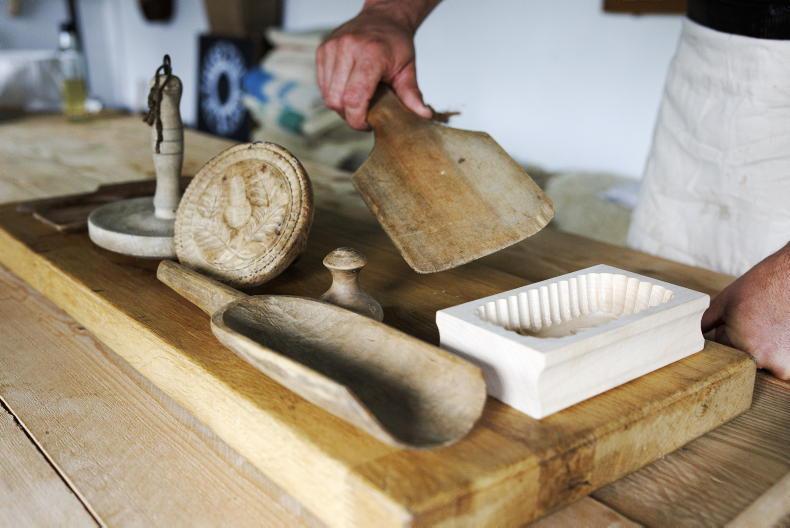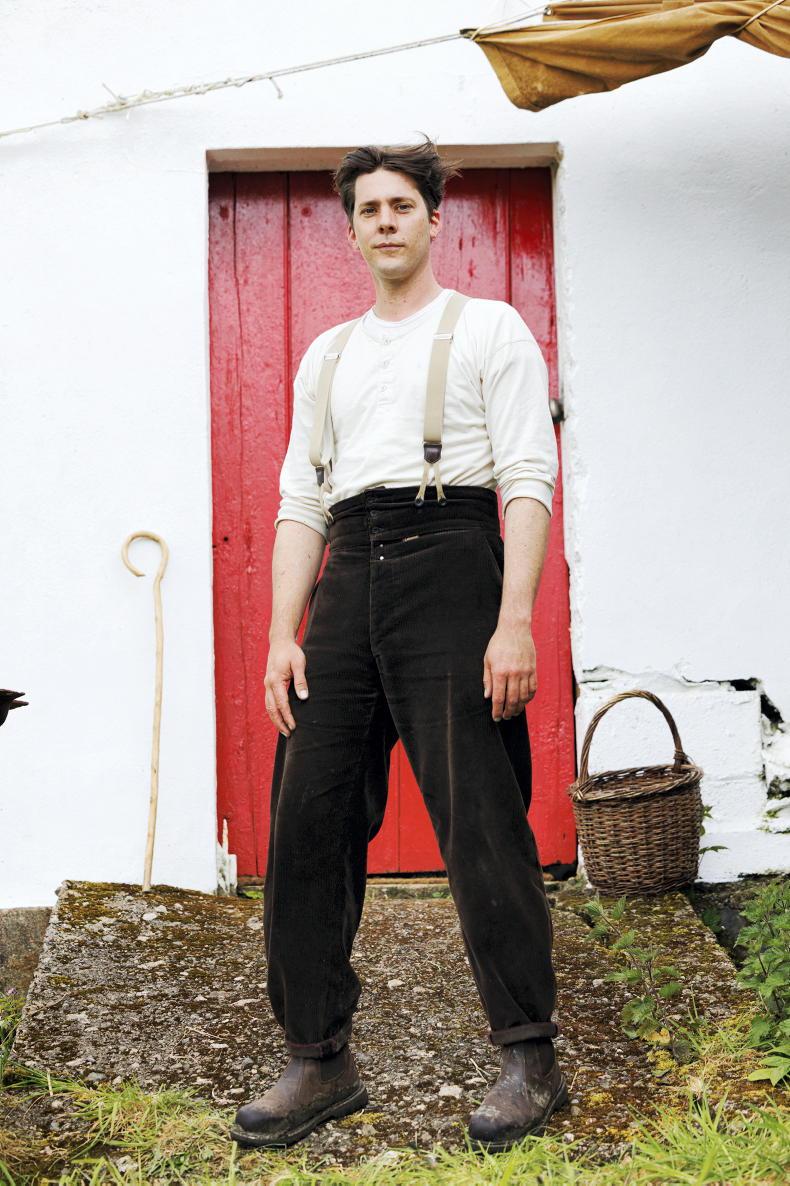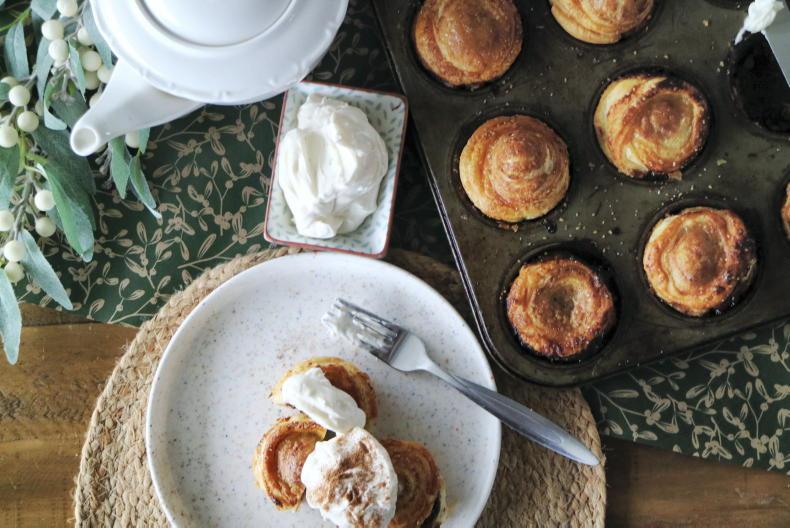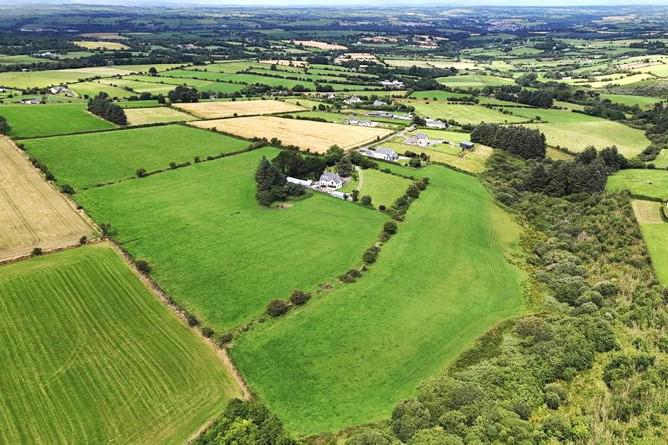Most people credit their mother or grandmother with teaching them how to bake, or for passing on family recipes and skills such as making homemade jam. In the past, traditions like this were always taught within the home, so that each generation knew how to cook and sustain themselves – to endure.
Life has changed a lot. Supermarkets are purveyors of everything needed or imaginable and too often children are not taught how to cook or grow food. For some, these traditions, skills and recipes are at risk of being forgotten.
Max Jones is a Cork-based traditional food conservationist, educator, and founder of Up There The Last, his business through which he offers a set of one-of-a-kind workshops, curated adventures, and dining experiences.
His series of sessions is designed to reconnect people to our inherent ability to convert the landscape into food, inspired by the resourceful methods he has gleaned from working alongside artisans from across Europe.
Max hopes that by helping to re-awaken these abilities, we can carve out a better future for our food; by honouring techniques of the past and providing an archive of these methods, they don’t get lost in today’s world.

A selection of butter making tools including a paddle from Italy, a press from Wales, a small Irish flower stamp, a Slovenian mould and a flour scoop from Italy.
From Italy to West Cork
Max’s life and work are split between coastal west Cork and the mountains of the Biellese in Italy. Half English (his father) and half Italian (his mother), Max was born and grew up in England, but his family spent their time going back and forth visiting Italy. His mum’s family are from the mountains in the north of Italy, between Milan and Turin.
“Spending so much time in the Italian mountains as a child gave me a really interesting hand in a very authentic way of life,” says Max. “As long as you had a hunk of cheese, a bit of salami, a piece of bread and a good knife in your pack, you could stay on the mountains for days at a time.”
To understand Max’s ethos on food is to understand his upbringing and journey to west Cork and the setting up of Up There The Last.
“I started off as a musician in London, playing gigs. While trying to pay my way, I worked in delicatessens because that food, cheese and charcuterie, is something I recognised from growing up in Italy. Over the years, I leaned far more in the food side of things than music and got a job with Mons Cheesemongers – a famous cheese maturer and retailer in London’s Borough Market.
“When I worked for those guys, I got into food on a deeper level. The cheeses we were maturing and working with, I recognised from my childhood. Every time I visited a cheesemaker, I’d be fascinated by the fact that they were preserving and actively converting their landscape into food, by stabilising milk into food. It’s just this incredible relationship between animals and the land – I was always really drawn to it.”
Max ended up fusing his passion for storytelling and cheesemaking by making a short film about Catherine Richard, who makes Bleu de Termignon in the Haute Maurienne, Savoie, in France.
However, it was when he discovered Woodcock Smokery wild salmon on the shelves in the market and enquired more about the producer behind it, Sally Barnes, that his journey brought him to Ireland.
“I went over to Sally for four weeks in the summer of 2017 and learned about smoking fish and wild salmon, and how incredible it is. I realised that she was another maker passing on knowledge and skills of her place and time. I went back to London for a short time, but ended up returning to west Cork to work with Sally. This turned into a four-year project, and during that time we built The Keep, which is now her school where she teaches classes on smoking and wild fish. She is passing on her knowledge to others, ultimately so it’s not forgotten.”
Max has also spent time working with Lost Valley Dairy in Cork, helping to develop the natural cheese, Carraignamuc, made with raw cow’s milk, natural rennet and sea salt. The cheese is aged for three to five months, developing a natural rind and is smooth, earthy and has a good, strong tangy taste.

Max Jones wants to reconnect people with their ability to convert the landscape into food . \ Donal O' Leary
Up There The Last
Through living with and learning from producers over the years, Max had a keen insight into that relationship with the land and sea and food production. He decided to devote his work to helping people get back to basics and rediscover food in its simplest form, while also introducing the traditional skills of food production and preservation to a younger generation.
Based in a booley near Leap in west Cork, Up There The Last – named after a book about the mountainous region where he spent his childhood – runs a series of workshops and events throughout the summer.
“I created the booley, a building, to host the courses and events and be in nature and connect with the land,” says Max. “It honours the Irish transhumance tradition of moving cattle to upland pasture where herders lived with their animals, sheltering in a basic booley, where the beautiful summer milk was turned to butter and cheese. There is no electricity or running water, so it really is somewhere you only use during the summer.”
Max’s events stem from two pathways – traditions of the sea and traditions of the land – and take visitors on a journey in a literal and visual sense. Depending on the event, they will either be brought on a walk through the local landscape or to the local beach for a session in foraging and cooking outdoors. After that, they make, taste and learn while Max tells the story of the produce and its connection to the place.
“I’ve noticed that when people come here, the location is something that they respond well to because there’s such an honesty here, a lovely authenticity to it,” says Max.
“During the courses and events, I listen to a lot of people. I never go in with an ‘I’m an expert’ kind of attitude. I want us all to learn from each other. I’m so open to that.
“I’m really just providing a space where we can keep the chats going. If I can impart any of my knowledge or skills to somebody that will help them to connect to what it means to smoke fish, make cheese or go sea picking and foraging, then that’s awesome.
“I feel like I’m just scratching the surface here in Ireland. It’s incredible to see what I can bring from my travels as well, trying to support other artists’ hands across Europe by bringing them to Ireland. To make, harvest and preserve your own food within your immediate, given geographical context is just amazing and what it’s all about for me.”

Max Jones with his dog Oats.
Up There The Last upcoming courses and events:
• Tasting: Forbidden foods – 25 July, €65pp.
• Feast: Immersive sea traditions dinner – 29 June, 13 July and 31 August, €95pp.
Traditions of the sea – 15 August, €95pp.
• Day Course: Natural cheese and butter making – 17 August, €245pp.
• Workshop: West Cork smokeys – 29 June and 27 July, €165pp
Foods from the foreshore – 20 July & 24 August, €165pp.
Natural butter making – 21 August, €165pp.
• Up There The Last has a newsletter which gives readers close access to examples of real food production from artisan producers across Europe. Check out substack.com/uptherethelast
• For more details and information, visit uptherethelast.com
Read more
Chef Anna Haugh: 'dairy was always a huge part of our diet'
Author Ali Dunworth raises a glass to the Irish pint
Most people credit their mother or grandmother with teaching them how to bake, or for passing on family recipes and skills such as making homemade jam. In the past, traditions like this were always taught within the home, so that each generation knew how to cook and sustain themselves – to endure.
Life has changed a lot. Supermarkets are purveyors of everything needed or imaginable and too often children are not taught how to cook or grow food. For some, these traditions, skills and recipes are at risk of being forgotten.
Max Jones is a Cork-based traditional food conservationist, educator, and founder of Up There The Last, his business through which he offers a set of one-of-a-kind workshops, curated adventures, and dining experiences.
His series of sessions is designed to reconnect people to our inherent ability to convert the landscape into food, inspired by the resourceful methods he has gleaned from working alongside artisans from across Europe.
Max hopes that by helping to re-awaken these abilities, we can carve out a better future for our food; by honouring techniques of the past and providing an archive of these methods, they don’t get lost in today’s world.

A selection of butter making tools including a paddle from Italy, a press from Wales, a small Irish flower stamp, a Slovenian mould and a flour scoop from Italy.
From Italy to West Cork
Max’s life and work are split between coastal west Cork and the mountains of the Biellese in Italy. Half English (his father) and half Italian (his mother), Max was born and grew up in England, but his family spent their time going back and forth visiting Italy. His mum’s family are from the mountains in the north of Italy, between Milan and Turin.
“Spending so much time in the Italian mountains as a child gave me a really interesting hand in a very authentic way of life,” says Max. “As long as you had a hunk of cheese, a bit of salami, a piece of bread and a good knife in your pack, you could stay on the mountains for days at a time.”
To understand Max’s ethos on food is to understand his upbringing and journey to west Cork and the setting up of Up There The Last.
“I started off as a musician in London, playing gigs. While trying to pay my way, I worked in delicatessens because that food, cheese and charcuterie, is something I recognised from growing up in Italy. Over the years, I leaned far more in the food side of things than music and got a job with Mons Cheesemongers – a famous cheese maturer and retailer in London’s Borough Market.
“When I worked for those guys, I got into food on a deeper level. The cheeses we were maturing and working with, I recognised from my childhood. Every time I visited a cheesemaker, I’d be fascinated by the fact that they were preserving and actively converting their landscape into food, by stabilising milk into food. It’s just this incredible relationship between animals and the land – I was always really drawn to it.”
Max ended up fusing his passion for storytelling and cheesemaking by making a short film about Catherine Richard, who makes Bleu de Termignon in the Haute Maurienne, Savoie, in France.
However, it was when he discovered Woodcock Smokery wild salmon on the shelves in the market and enquired more about the producer behind it, Sally Barnes, that his journey brought him to Ireland.
“I went over to Sally for four weeks in the summer of 2017 and learned about smoking fish and wild salmon, and how incredible it is. I realised that she was another maker passing on knowledge and skills of her place and time. I went back to London for a short time, but ended up returning to west Cork to work with Sally. This turned into a four-year project, and during that time we built The Keep, which is now her school where she teaches classes on smoking and wild fish. She is passing on her knowledge to others, ultimately so it’s not forgotten.”
Max has also spent time working with Lost Valley Dairy in Cork, helping to develop the natural cheese, Carraignamuc, made with raw cow’s milk, natural rennet and sea salt. The cheese is aged for three to five months, developing a natural rind and is smooth, earthy and has a good, strong tangy taste.

Max Jones wants to reconnect people with their ability to convert the landscape into food . \ Donal O' Leary
Up There The Last
Through living with and learning from producers over the years, Max had a keen insight into that relationship with the land and sea and food production. He decided to devote his work to helping people get back to basics and rediscover food in its simplest form, while also introducing the traditional skills of food production and preservation to a younger generation.
Based in a booley near Leap in west Cork, Up There The Last – named after a book about the mountainous region where he spent his childhood – runs a series of workshops and events throughout the summer.
“I created the booley, a building, to host the courses and events and be in nature and connect with the land,” says Max. “It honours the Irish transhumance tradition of moving cattle to upland pasture where herders lived with their animals, sheltering in a basic booley, where the beautiful summer milk was turned to butter and cheese. There is no electricity or running water, so it really is somewhere you only use during the summer.”
Max’s events stem from two pathways – traditions of the sea and traditions of the land – and take visitors on a journey in a literal and visual sense. Depending on the event, they will either be brought on a walk through the local landscape or to the local beach for a session in foraging and cooking outdoors. After that, they make, taste and learn while Max tells the story of the produce and its connection to the place.
“I’ve noticed that when people come here, the location is something that they respond well to because there’s such an honesty here, a lovely authenticity to it,” says Max.
“During the courses and events, I listen to a lot of people. I never go in with an ‘I’m an expert’ kind of attitude. I want us all to learn from each other. I’m so open to that.
“I’m really just providing a space where we can keep the chats going. If I can impart any of my knowledge or skills to somebody that will help them to connect to what it means to smoke fish, make cheese or go sea picking and foraging, then that’s awesome.
“I feel like I’m just scratching the surface here in Ireland. It’s incredible to see what I can bring from my travels as well, trying to support other artists’ hands across Europe by bringing them to Ireland. To make, harvest and preserve your own food within your immediate, given geographical context is just amazing and what it’s all about for me.”

Max Jones with his dog Oats.
Up There The Last upcoming courses and events:
• Tasting: Forbidden foods – 25 July, €65pp.
• Feast: Immersive sea traditions dinner – 29 June, 13 July and 31 August, €95pp.
Traditions of the sea – 15 August, €95pp.
• Day Course: Natural cheese and butter making – 17 August, €245pp.
• Workshop: West Cork smokeys – 29 June and 27 July, €165pp
Foods from the foreshore – 20 July & 24 August, €165pp.
Natural butter making – 21 August, €165pp.
• Up There The Last has a newsletter which gives readers close access to examples of real food production from artisan producers across Europe. Check out substack.com/uptherethelast
• For more details and information, visit uptherethelast.com
Read more
Chef Anna Haugh: 'dairy was always a huge part of our diet'
Author Ali Dunworth raises a glass to the Irish pint












SHARING OPTIONS